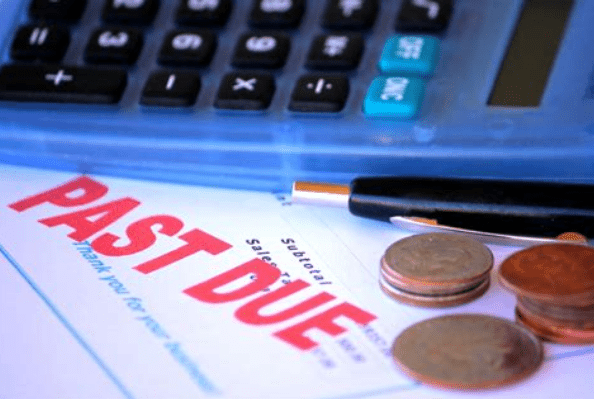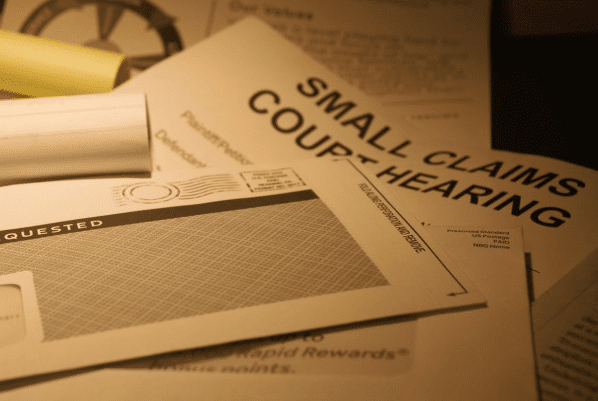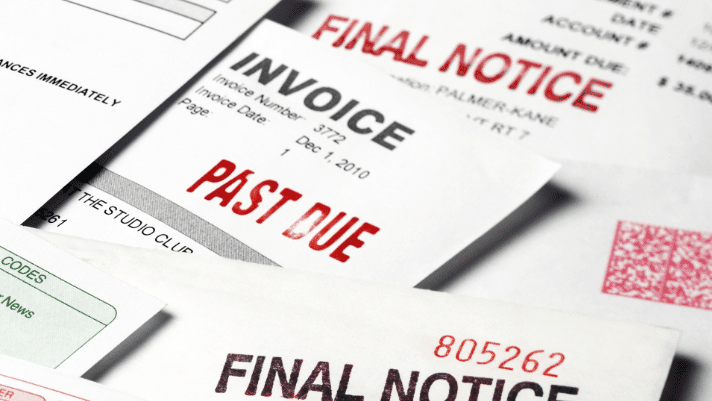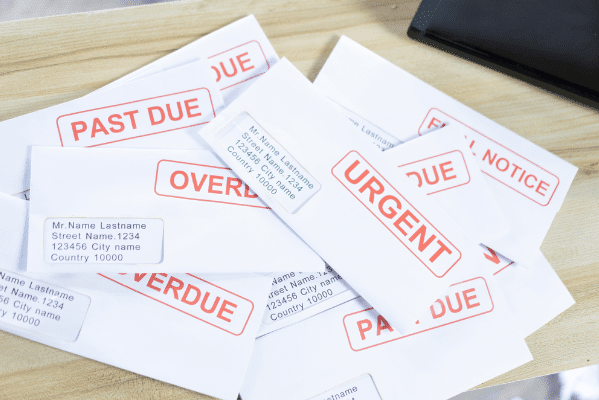In New York, when faced with a debt collection lawsuit, timing is crucial. You typically have between 10 to 30 days to respond. With ZumaZip, you can streamline the process by using our Answer form or other state-specific forms to kickstart your response.
Crafting a robust Answer is key. Address each issue raised in the Complaint and assert your affirmative defenses. Once your Answer is ready, file it with the court and send a copy to the plaintiff.
Keep in mind that in New York, the statute of limitations on debt is only three years. Leveraging this as a defense could lead to a dismissal of your case. Stay informed and proactive with ZumaZip by your side.
Facing a debt collection lawsuit in New York can be overwhelming, but you’re not alone. In this guide, we’ll walk you through the process of responding to a Summons for debt collection, covering everything from deadlines to forms and laws specific to the state.
Before we dive in, let’s clarify some key terms:
- Defendant: That’s you—the individual or entity being sued.
- Plaintiff: This refers to the creditor or debt collector initiating the lawsuit against you.
- Summons: This legal document officially notifies you of the lawsuit.
- Complaint: The Complaint outlines the reasons for the lawsuit, detailing the claims or allegations against you.
When you’re sued for debt in New York, you’ll receive both a Summons and a Complaint. These documents can be served to you in several ways, including personal delivery, delivery to someone at your residence, or leaving copies at a location where you’re likely to find them.
Once you’ve been served, it’s essential to respond promptly by filing a written Answer. This is where the clock starts ticking, and you have a limited window to act.
Stay tuned as we guide you through drafting and filing your Answer in New York.
Answer a New York debt lawsuit before the deadline
As noted above, you only have a short period to respond to a Summons and Complaint:
- 10 days if the papers were handed to you personally and the case is outside of New York City, or
- 20 days if the papers were handed to you personally in New York City, or
- 30 days if the papers were delivered in any other way.
This includes weekends and holidays.
If you don’t file your Answer by this deadline, usually the plaintiff will automatically win when the court orders a default judgment against you.
Default judgments typically give the plaintiff everything they ask for, including interest and court fees. This means you may end up owing much more than your original debt — without even being able to tell your side of the story! It also grants them the ability to take money from your paychecks or your bank accounts. The judgment will also show up on your credit report, where it can stay for years.
You can avoid a default judgment by filing an Answer on time and showing up at all hearings.
New York Answer to Summons forms
The easiest and fastest way to draft a response to a debt collection lawsuit is this Answer form. ZumaZip walks you through the process of drafting your Answer in minutes. All you have to do is respond to a few questions about the case.
Here’s a sample of ZumaZip’s Answer form.
Otherwise, you can create your own Answer or use New York’s general form. While these two options are still better than ignoring the case, you may find that it takes longer to respond on your own or fill out a form without any guidance.
ZumaZip walks you through the process of drafting an Answer that will build you a strong case. You won’t have to hire an attorney to represent you with this process because of ZumaZip’s software that makes responding simple and easy.
Answer Filing Fees for New York
Great news! You don’t have to pay a fee to file your Answer in New York.
However, depending on the court, you may have to pay fees to file other types of documents, such as motions. You can find a list of filing fees on NYCourts.gov.
Follow these steps to respond to a debt collection case in New York
If you’ve been sued for debt in New York, you might think you have to hire an attorney to fight back. ZumaZip empowers you to represent yourself in court, saving yourself the time, cost, and stress of finding an attorney.
Follow these three steps to respond to a debt lawsuit in New York and increase your chances of winning by 7x:
- Answer each issue of the Complaint.
- Assert your affirmative defenses.
- File the Answer with the court and serve the plaintiff.
Keep reading to learn more about these three steps.
1. Answer each issue of the Complaint
Responding to a Complaint on your own might seem scary. But it doesn’t have to be.
At the beginning of a lawsuit, you can just make a general denial of all claims in the Complaint. This is because in a consumer debt case, the plaintiff has the “burden of proof.” This means that it’s up to the plaintiff to show evidence that:
- They have the right to sue you,
- The debt belongs to you, and
- You owe the exact amount asked for in the Complaint.
By making a general denial, you can force the plaintiff to come up with that evidence. Or if you want, you can also respond to each numbered paragraph in your Answer by stating one of the following:
- You admit the claim.
- You deny the claim.
- You don’t know if the claim is true.
ZumaZip helps you understand how to respond.
2. Assert affirmative defenses
Your defenses are another key part of your Answer. Your defenses are the reasons why the plaintiff shouldn’t win the case.
Below are some common defenses in a debt collection case. Every case is different, so only include the defenses you think may apply to your case. You can have multiple defenses, including defenses different than the ones listed below.
- Improper service. There are specific rules for how a Summons and Complaint can be delivered to you. If the plaintiff didn’t follow these rules, you should raise this defense.
- You paid all or some of the money. You can use this defense if you paid all or some of the debt that the plaintiff is asking for. If you only paid part of the money, this may only be a partial defense.
- No business relationship with the plaintiff. If you don’t know the plaintiff, you should state this in your Answer. But that doesn’t mean you don’t owe them money. This is because some companies, called “debt buyers,” make money by buying and collecting debt. This practice is legal. So it’s possible your original creditor sold your debt to a party that you don’t know.
- Unjust enrichment. You can use this defense if you think the plaintiff is asking for an amount of money that’s excessive compared to your original debt amount. But keep in mind that over time, interest can significantly increase the amount you originally owed.
- Unconscionability. You can use this defense when the agreement that resulted in your debt was extremely one-sided and unfair.
- Statute of limitations has lapsed. The statute of limitations is the legal deadline for filing a lawsuit (see “Statute of Limitations on Debt in New York” below). If you think the deadline has passed, you can use this defense.
- Debt was discharged in bankruptcy. You can use this defense if you declared bankruptcy and the debt you’re being sued for was discharged. Discharging debt in bankruptcy means you no longer owe the money.
- You’re a victim of identity theft. Identity theft is when someone steals your personal information and engages in transactions pretending to be you. If this happened to you, you can use this as a defense. You’re not responsible for any debt incurred by the identity thief.
ZumaZip makes it easy to assert the right affirmative defenses.
The list above isn’t complete — you may have other defenses. Some localities (such as New York City) also have special legal defenses that aren’t available elsewhere.
You should be sure to include all your defenses in your Answer. But keep in mind that financial hardship alone is not a defense. Unfortunately, a creditor can still win a case against you, even if you’ve lost your job or have mounting medical bills.
3. File the Answer with the court and serve the plaintiff
Once you’ve completed your Answer, it’s time to file. Make sure you give yourself plenty of time before the deadline to do this.
ZumaZip files for you in all 50 states.
If you got an e-filing notice with the Summons, you can serve and file your Answer online using the New York State Courts Electronic Filing system. If you don’t want to file online, you should file your Answer in the court where the case was started. Be sure to keep a copy for yourself.
You’ll also have to serve the plaintiff with a copy of your Answer. You can do this by having someone 18 or older (not you or anyone involved in the case) mail a copy to the plaintiff.
If the plaintiff has a lawyer, the lawyer should get a copy of your Answer by mail, too. The person who mails your Answer for you will then have to fill out an Affidavit of Service by Mail form. You should file this proof of service form with the court and keep a copy for yourself.
If you have any questions about how to properly file and serve your Answer, you should contact the court clerk’s office. Some courts even let you tell your Answer to the clerk in person.
Once you’ve filed your Answer, the court clerk will give you information about the first hearing and other next steps.
Draft and file an Answer online in minutes with ZumaZip.
Now, let’s take a look at an example of responding to a debt lawsuit in New York.
Manuel finds himself in a challenging situation when LVNV Funding sues him in New York. The Summons and Complaint were personally delivered to him in Oneida County, triggering a 20-day deadline for response. Using ZumaZip, Manuel swiftly drafts and files an Answer into the case.
In his Answer, Manuel strategically denies most of the claims and invokes the expired statute of limitations on debt as one of his affirmative defenses. With no recent activity on his debt account for nearly seven years, LVNV Funding’s lawsuit lacks legal grounds under New York’s three-year statute of limitations.
Upon receiving Manuel’s Answer, LVNV Funding’s legal team opts to dismiss the case, sparing Manuel from further legal proceedings.
ZumaZip is your ally in navigating the challenges of debt collection. Whether you’re facing a debt lawsuit, need to correspond with collectors, or aim to settle a debt, ZumaZip offers a comprehensive solution.
Our Answer service streamlines the process with a user-friendly professional legal document solutions. By guiding you through a series of questions, ZumaZip ensures that you complete your Answer accurately and efficiently. Once finished, our team will review your document and handle the filing process on your behalf, providing peace of mind throughout the legal proceedings.
The statute of limitations on most debt in New York is three years
To sue for unpaid debt, a creditor has to file the lawsuit before a deadline set by law. This is called the statute of limitations.
Under N.Y. Civ. Prac. L. & R. §214-i, the statute of limitations for consumer credit transactions in New York is three years. In other words, the New York statute of limitations on debt is three years for most types of debt.
The three years is counted from the more recent of:
- When the repayment became due, or
- When you made the last payment.
After three years, the creditor can no longer sue you. So if you think you’re being sued beyond this deadline, you should raise this defense in your Answer.
The table below further outlines the statute of limitations on different types of debt in New York:
| Debt Type | Deadline |
|---|---|
| Credit card | 3 years |
| Medical | 3 years |
| Student loan | 3 year |
| Auto loan | 3 years |
| Personal loan | 3 years |
| Mortgage | 6 years |
| Judgment | 20 years |
| Source: N.Y. C.P.L.R. § 211, § 213, and § 214-I |
New York debt collection laws can protect you
If you’ve run into hard times, it’s possible that more than one creditor is trying to recover money from you.
If you don’t pay, after a while creditors often hire a debt collection company like Covington Credit to try to collect the money for them.
You may already be familiar with these companies. Some call from blocked numbers and use aggressive tactics to scare you into paying. And some even try to recover “zombie debt” — debt that you no longer owe for various reasons or maybe isn’t even yours!
Any time you’re dealing with a debt collector, it’s important to know your rights.
For example, when a debt collector contacts you for the first time, by law they must send you a letter within 5 days stating:
- the debt amount;
- the creditor’s name;
- a statement that the debt collector will assume the debt is valid unless you dispute the validity of all or any part of the debt within 30 days of receiving the notice; and
- a statement that if you ask in writing, the debt collector will give you the original creditor’s name and address.
If you don’t think you owe part or any of the debt, or if you want to know the name and address of the original creditor, you should send a Debt Validation Letter to the debt collector within 30 days by certified mail.
If you do this, the debt collector has to stop trying to collect the debt until it verifies the debt or the original creditor information.
Not sued yet?
Use our Debt Validation Letter.
Out Debt Validation Letter is the best way to respond to a collection letter. Many debt collectors will simply give up after receiving it.
Under federal and New York law, debt collectors also may not use in improper, harassing, or deceptive practices, such as:
- threatening violence or by using profane language
- reaching out to people you know, except to get your contact information
- implying they’re a law enforcement agency, government agency, or credit reporting agency
- misrepresenting the amount of your debt or the legal status of your debt
- calling you repeatedly and/or at unreasonable times
- contacting you at work if the debt collector knows your employer doesn’t approve of such contact
- contacting you if you’re represented by an attorney (they have to contact your lawyer instead)
- contacting you after you’ve stated in writing that you don’t want to be contacted (though they can still resort to legal action)
You should keep written records of all contact with debt collectors.
If you think a debt collector is using illegal tactics, you can contact an attorney or file a Complaint with one of the following agencies:
New York State Attorney General
Consumer Frauds & Protection Bureau
120 Broadway
New York, NY 10271
1-800-771-7755
www.ag.ny.gov
Federal Trade Commission
Consumer Response Center
Washington, DC 20508
1-877-382-4357
www.ftc.gov
If you’d like to learn more about getting your finances in order and avoiding debt in the future, you might also consider taking a personal finance course.
Facing financial challenges can be overwhelming, but you don’t have to navigate them alone. The Debt Lawyer specializes in offering comprehensive bankruptcy solutions for residents of New Jersey and New York with a team of seasoned team of legal professionals dedicated to providing personalized guidance every step of the way. Whether you’re considering filing for bankruptcy or just seeking clarity about your financial situation, you have resources.
New York legal aid organizations can help you
If you need help with your case but can’t afford a lawyer, you may be able to get free or low-cost services from a legal aid organization. Your annual income will typically have to be at or below a certain level to qualify.
Below are some organizations that may be able to help.
Legal Aid Society of Mid-New York, Inc.
120 Bleecker Street, Utica, NY 13501
(877) 777-6152
www.lasmny.com
Counties served: Broome, Cayuga, Chenango, Cortland, Delaware, Herkimer, Jefferson, Lewis, Madison, Oneida, Onondaga, Oswego, Otsego
Legal Aid Society of Northeastern New York, Inc.
95 Central Avenue, Albany, NY 12206
(800) 462-2922
www.lasnny.org
Counties served: Albany, Clinton, Columbia, Essex, Franklin, Fulton, Greene, Hamilton, Montgomery, Rensselaer, St. Lawrence, Saratoga, Schenectady, Schoharie, Warren, Washington
Legal Assistance of Western New York, Inc.
361 South Main Street, Geneva, NY 14456
(585) 325-2520
www.lawny.org
Counties served: Allegany, Cattaraugus, Chemung, Livingston, Monroe, Ontario, Schuyler, Seneca, Steuben, Tioga, Tompkins, Wayne, Yates
Legal Services NYC
40 Worth Street, Suite 606, New York, NY 10013
(917) 661-4500
www.legalservicesnyc.org
Counties served: Bronx, Kings, New York, Queens, Richmond
Legal Services of the Hudson Valley
90 Maple Avenue, White Plains, NY 10601
(914) 949-1305
www.lshv.org
Counties served: Dutchess, Orange, Putnam, Rockland, Sullivan, Ulster, Westchester
Nassau/Suffolk Law Services Committee, Inc.
One Helen Keller Way, 5th Floor, Hempstead, NY 11550
(516) 292-8100
www.nslawservices.org
Counties Served: Nassau, Suffolk
Neighborhood Legal Services, Inc.
Main Seneca Building, 237 Main Street, 4th Floor, Buffalo, NY 14203
(716) 847-0650
www.nls.org
Counties served: Erie, Genesee, Niagara, Orleans, Wyoming
New York court locations
Your Summons will tell you the civil court in which you’re being sued. If you have questions about how to properly prepare and file your Answer, you can usually talk to the court clerk. You can find the contact information for any court on NYCourts.gov.
Key Takeaways
If you’re sued for unpaid debt, the most important thing to remember is to file your Answer before the deadline!
Otherwise, the plaintiff may automatically win.
The deadline is 10-20 days from receipt if the Summons and Complaint was delivered to you personally, or 30 days if it was delivered any other way.
Here’s a recap of the process:
- Respond to each issue of the Complaint.
- Assert your affirmative defenses.
- File the Answer, and send a copy to the plaintiff.
If you need help with this process, ZumaZip’s got you covered.
ZumaZip is a simple-to-use online application for preparing an Answer to a debt collection Complaint. Preparing your Answer with ZumaZip is free. We can also review, file, and serve the Answer for you for an additional fee.
Don’t risk losing your case because you missed the Answer deadline — click here to get started with ZumaZip today.
What is ZumaZip?
ZumaZip is a convenient solution designed to streamline your response to a debt collection lawsuit. Here’s a breakdown of what you can expect when you use ZumaZip:
Firstly, you’ll access our user-friendly web application, which guides you through the process step by step. You’ll be prompted to answer a series of questions related to your specific situation. Once you’ve completed the questionnaire, you have the option to either print out the finalized forms and mail them to the appropriate courts yourself, or you can opt to utilize ZumaZip’s services to file them on your behalf. Additionally, if you choose this option, an attorney will review your document for added peace of mind.
If you’re seeking guidance on how to effectively respond to a debt collection lawsuit, ZumaZip can provide the assistance you need. Feel free to explore our FAQs for more information on what ZumaZip has to offer.
What if I haven’t been sued yet?
If you’ve only received a collections notice, but not a lawsuit, the best way to respond is with a Debt Validation Letter. When a debt collector contacts you in any way, whether it’s by phone or mail, you can respond by formally requesting a debt validation with a Debt Validation Letter . This letter notifies the collector that you dispute the debt and forces them to provide proof you owe the debt. They can’t call you or continue collecting until they provide validation of the debt. This flowchart shows how you can use a Debt Validation Letter to win.
Get started with a Debt Validation Letter here.
How to Answer a Summons for debt collection in all 50 states
Here’s a list of guides on how to respond to a debt collection lawsuit in each state:
- Alabama
- Alaska
- Arizona
- Arkansas
- California
- Colorado
- Connecticut
- Delaware
- Florida
- Georgia
- Hawaii
- Idaho
- Illinois
- Indiana
- Iowa
- Kansas
- Kentucky
- Louisiana
- Maine
- Maryland
- Massachusetts
- Michigan
- Minnesota
- Mississippi
- Missouri
- Montana
- Nebraska
- Nevada
- New Hampshire
- New Jersey
- New Mexico
- New York
- North Carolina
- North Dakota
- Ohio
- Oklahoma
- Oregon
- Pennsylvania
- Rhode Island
- South Carolina
- South Dakota
- Tennessee
- Texas
- Utah
- Vermont; Vermont (Small Claims court)
- Virginia
- Washington
- West Virginia
- Wisconsin
- Wyoming
Guides on how to beat every debt collector
Hey there! Facing off against a debt collector can feel like a daunting challenge, but fear not! We’re here to help you navigate through it all with our handy guides designed to assist you in beating every debt collector you encounter. Whether you’re facing a new lawsuit or dealing with a persistent collector, we’ve got your back. Stay positive, stay informed, and let’s tackle this together!
- Absolute Resolutions Investments LLC
- Accredited Collection Services
- Alliance One
- Amcol Clmbia
- American Recovery Service
- Asset Acceptance LLC
- Asset Recovery Solutions
- Associated Credit Services
- Autovest LLC
- Cach LLC
- Cavalry SPV I LLC
- Cerastes LLC
- Colinfobur
- Covington Credit
- Crown Asset Management
- CTC Debt Collector
- Cypress Financial Recoveries
- Delanor Kemper & Associates
- Eagle Loan of Ohio
- Educap
- Estate Information Services
- FIA Card Services
- Forster & Garbus
- Freshview Solutions
- Fulton Friedman & Gullace LLP
- Harvest Credit Management
- Howard Lee Schiff
- Hudson & Keyse LLC
- Integras Capital Recovery LLC
- Javitch Block
- Jefferson Capital Systems LLC
- LVNV Funding
- Mannbracken
- Mariner Finance
- Medicredit
- Michael J Adams PC
- Michael J Scott
- Midland Funding LLC
- Mullooly, Jeffrey, Rooney & Flynn
- Mountain Land Collections
- MRS Associates
- National Collegiate Trust
- Nationstar Foreclosure
- Northstar Capital Acquisition
- NCEP LLC
- NRC Collection Agency
- OneMain Financial
- Palisades Collection LLC
- Pallida LLC
- Paragon Revenue Group
- Pinnacle Collections Agency
- PMAB LLC
- Portfolio Recovery Associates
- Provest Law
- PYOD LLC
- Reunion Student Loan Finance Corporation
- Revenue Group
- Regents and Associates
- RSIEH
- Salander Enterprises LLC
- Second Round Sub LLC
- Security Credit Services
- Sherman Financial Group
- Suttell and Hammer
- T-Mobile
- Transworld Systems
- Tulsa Teachers Credit Union
- UCB Collection
- Velo Law Office
- Velocity Investments
- Waypoint Resource Group
- Weinberg and Associates
- Wolpoff & Abramson
Settle your medical debt
Having a health challenge is stressful, but dealing medical debt on top of it is overwhelming. Here are some resources on how to manage medical debt.
- Am I Responsible for My Spouse’s Medical Debt?
- Do I Need a Lawyer for Medical Bills?
- Do I Need a Lawyer to Fight Medical Bill Debt?
- Does Bankruptcy Clear Medical Debt?
- How Much Do Collection Agencies Pay for Medical Debt?
- How to Find Medical Debt Forgiveness Programs
- Is There a Statute of Limitations on Medical Bills?
- Medical Debt Statute of Limitations by State
- Summoned to Court for Medical Bills — What Do I Do?
- Summoned to Court for Medical Bills? What to Do Next
Stop calls from Debt Collectors
Do you keep getting calls from an unknown number, only to realize that it’s a debt collector on the other line? If you’ve been called by any of the following numbers, chances are you have collectors coming after you, and we’ll tell you how to stop them.
- 800-390-7584
- 800-289-8004
- 800-955-6600
- 877-366-0169
- 877-591-0747
- 800-278-2420
- 800-604-0064
- 800-846-6406
- 877-317-0948
- 888-899-4332
- 888-912-7925
- 202-367-9070
- 502-267-7522



































